General Information
Nepal is one of the richest countries in the world in terms of bio-diversity due to its unique geographical position and altitude variation. The elevation of the country ranges from 60 meters above sea level to the highest point on earth, Mt. Everest at 8,848 meters, all within a distance of 150 kilometers resulting in climatic conditions from Sub-tropical to Arctic.
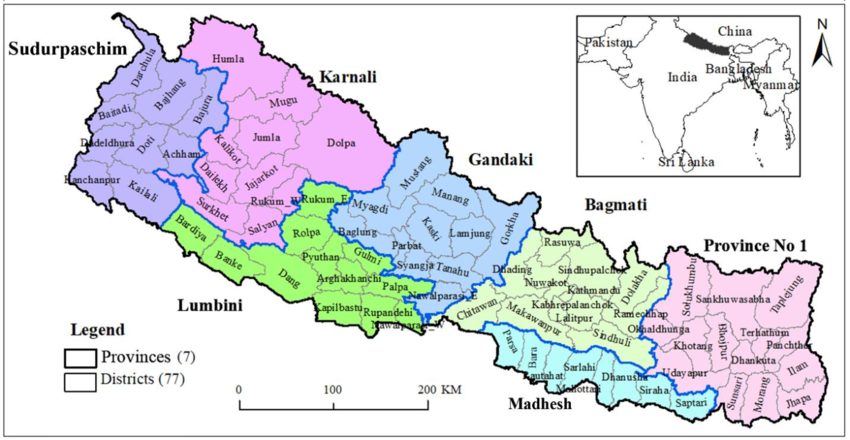
Nepal is occupying only 0.1% of the earth which is home to:
- 2% of all the flowering plants in the world
- 8% of the world's population of birds (more than 848 species)
- 4% of mammals on earth
- 11 of the world's 15 families of butterflies (more than 500 species)
- 600 indigenous plant families
- 319 species of exotic orchids
| Area: | 147,181 sq. kilometers |
| Geography: | Situated between China in the north and India in the south |
| Capital: | Kathmandu |
| Population: | 22 million |
| Language: | Nepali is the national language. However, travel-trade people understand and speak English as well. |
| Currency: | Nepali Rupee (approximately US$ 1 equals Rs. 71.24 ) |
| Political System: | Multi-party democracy with constitutional monarchy |
| Religion: | Nepal enjoys the distinction of being the only Hindu Kingdom in the world. However, there is a harmonious blending of Hinduism and Buddhism. |
| Climate: | Nepal has four major seasons, namely, 1. Winter: December-February 2. Spring: March-May 3. Summer: June-August 4. Autumn: September-November Nepal can be visited the whole year round. |
| People: | Nepal has more than 61 ethnic groups and 70 spoken languages. |
| What to Wear: | Lightweight clothing is recommended for May through October. Warm garments are required in October through March. An umbrella or raincoat is a must for the rainy season. |
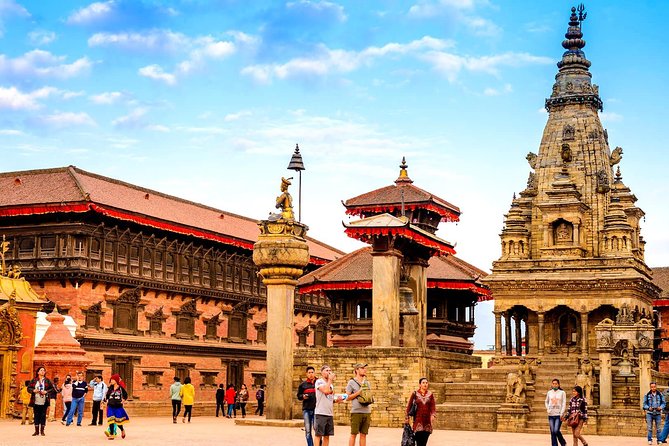 Bhaktapur, Nepal
Bhaktapur, Nepal
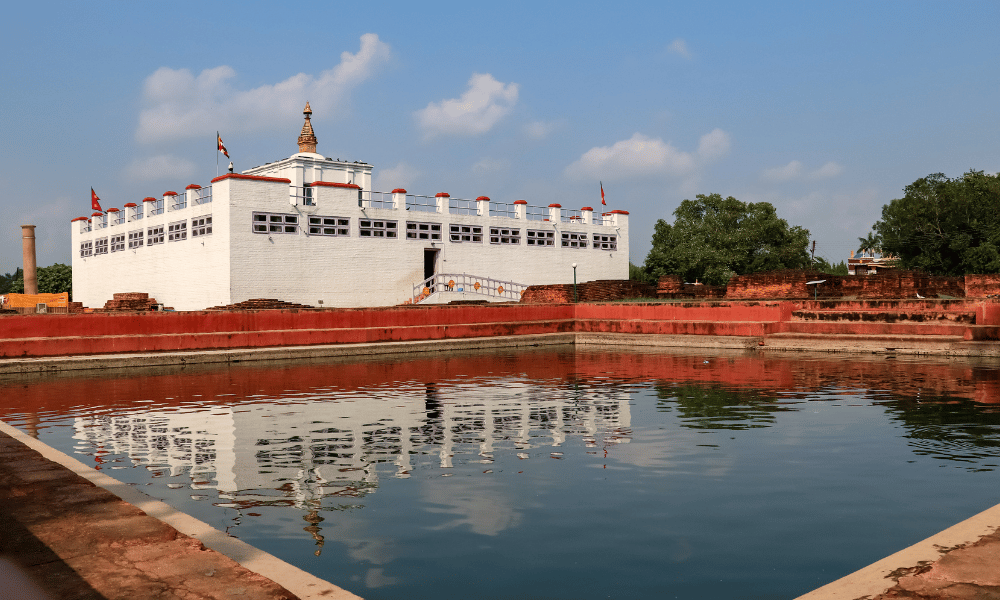
Lumbini Nepal
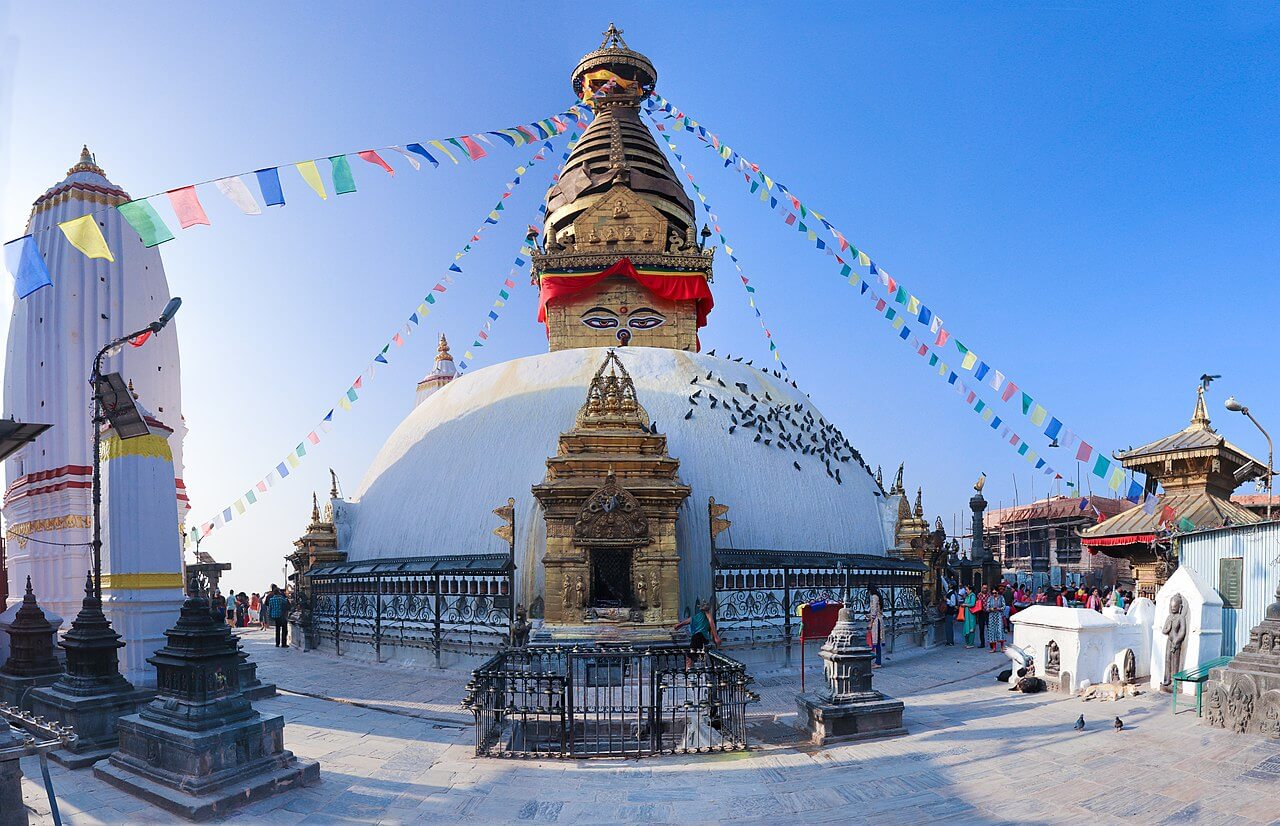 Swayambhu, Nepal
Swayambhu, Nepal
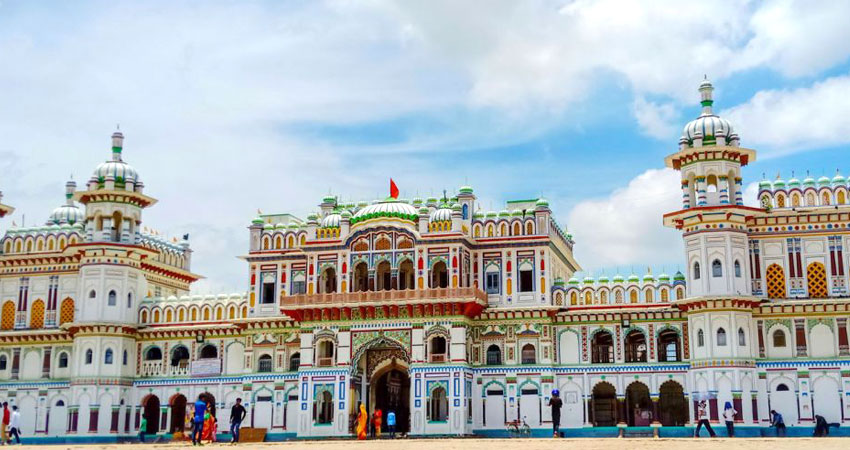
Janaki Temple, Janakpur.